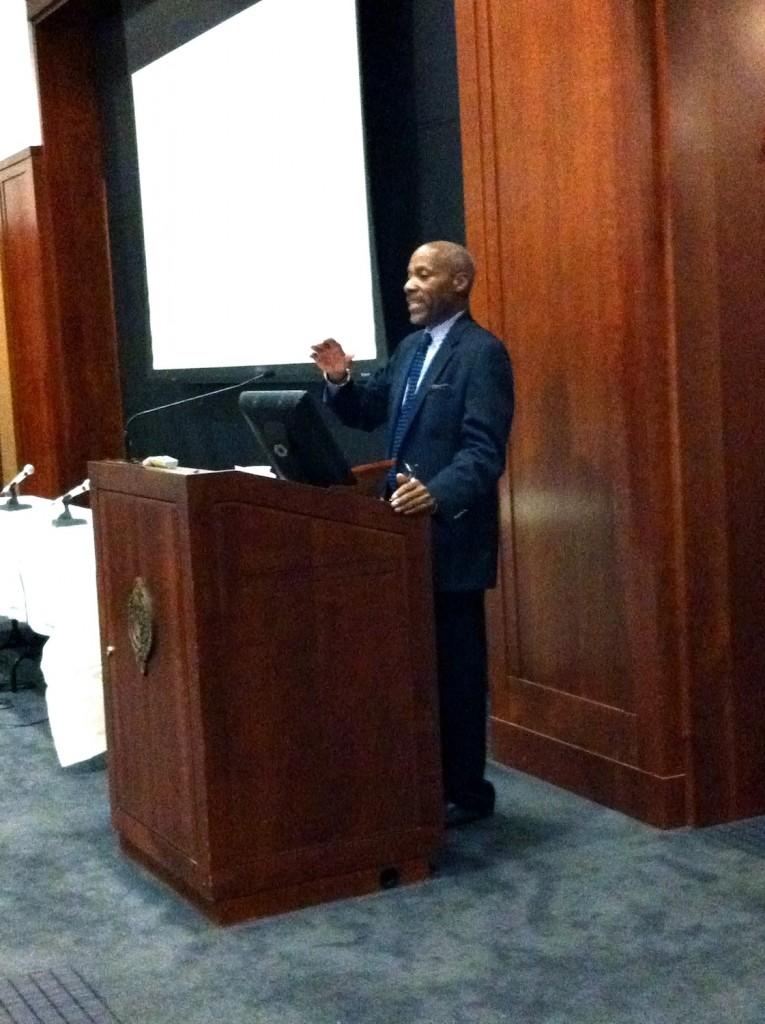University Hosts Dream Act Forum
October 19, 2011
Anyone can apply to college, but not everyone can afford to pay the hefty tuition. Most solve this problem by applying for financial aid, but for undocumented students this is not an option. Undocumented students are youth that have moved to the United States and are not considered to hold legal residency.

According to Salvatore Longarino, director of the Office for International Students, Fordham does accept undocumented students, but they tend not to be able to pay for the tuition. He said, “Fordham and many other big universities like Columbia and NYU do not check for legal status, but we are denying education to those who cannot afford to pay tuition since we cannot award them financial aid.”
Longarino said that many undocumented students come from low-income families, who tend to maintain low paying jobs that do not require a background check. However, Fordham performs a background check when students apply for financial aid, and without financial aid, an undocumented student cannot afford the tuition.
On Tuesday Oct. 11, Fordham hosted a meeting addressing the Dream Act in New York. This act would provide a way for undocumented youth in the U.S. to receive financial aid as well as a path to citizenship assuming they have plans to attend college or serve in the military.
On Oct. 8, Governor Jerry Brown of California signed the Dream Act allowing undocumented students to receive state scholarships. With the support of New York Senator Bill Perkins as well as other groups that endorse the Dream Act, the meeting hoped to inspire change in New York State as well.
Archbishop Emeritus of Los Angeles, Cardinal Roger Mahoney, who commented via videolink at the beginning of the event, said, “The reward of having young people build their lives on sound character so they don’t feel guilty because they don’t have legal status is them having the literal amplitude to become legally present and productive in our society. It increases their own moral values and their moral ethical commitments to our loans.” He also brought up the history of Fordham and the fact that the Irish immigrant John Joseph Hughes founded the school and it would be contradictory to our history if we did not accept undocumented youth.
Many families immigrate to the U.S. in hopes of providing a better future for the next generation. After high school, however, undocumented students’ choices are limited, as many colleges and jobs require citizenship. This was the case for Melissa Garcia Velez who spoke about her personal experiences and trials at the meeting. Velez is a sophomore in the honors program at Lehman College and president of the Lehman Dream Team. She is from Buga, Colombia, and is an undocumented student. “Lehman College does not check your citizenship status. They care more about your academic future and abilities, which is how it should be,” she said.
Asmaou Diallo, FCRH ’12, said, “In high school I was an undocumented student. Some of my friends, were undocumented, too, and I would talk about our situation because we did not know what to do. Sometimes we would joke a little about the alternatives but when we went home we would cry because we were scared and didn’t know what to do.” Fortunately for Diallo, she was able to obtain a green card, which allowed her to attend Fordham but for many other students this is not the case.
Obtaining a green card or becoming a naturalized citizen does not happen overnight. The process of becoming a citizen sometimes takes 10 to 20 years or more. Elaine Congress, associate dean at Fordham University Graduate School of Social Service, said, “Telling immigrants to get a green card is an elitist thing to say. Many people don’t realize the time and resources necessary to obtaining one.”
This does not mean that Fordham does not have any undocumented students. Logarino presented the following hypothetical situation: “Suppose I was a straight ‘A’ student and valedictorian of my class and I was accepted to Fordham. I would not apply for financial aid, though. Instead, I would set up a deal with my father or rich uncle to help pay for my tuition. But once I finish college and get a degree, I cannot get a job because I don’t have citizenship, a passport and I can’t travel.”
Despite the positive future the Dream Act promises, many people feel that it is too costly and we should focus on people who are U.S. citizens. NPR stated that the Dream Act could cost upwards of six billion dollars, which is a large financial strain to have on an economy with 9.1 percent unemployment (U.S. Bureau of Labor Statistics).
Darryl McLeod, Center for International Policy Studies and Economic Department at Fordham, said, “The Dream Act is an investment and the return could be as much as one to two trillion dollars in the future. The undocumented students who come to our school would become educated and then become an active citizen in our society. The United States would then be able to benefit from their connections because they tie us to other economies around the world.”
Mahoney said, “As a Catholic university it is our duty to reach out into the community and help those in need.”
At the end of the meeting, the speakers encouraged Fordham to start their own Dream Team as well as soliciting the support of the state legislature. In their fight for citizenship, undocumented students like Velez have adopted the motto, “undocumented, unafraid and unapologetic.”











